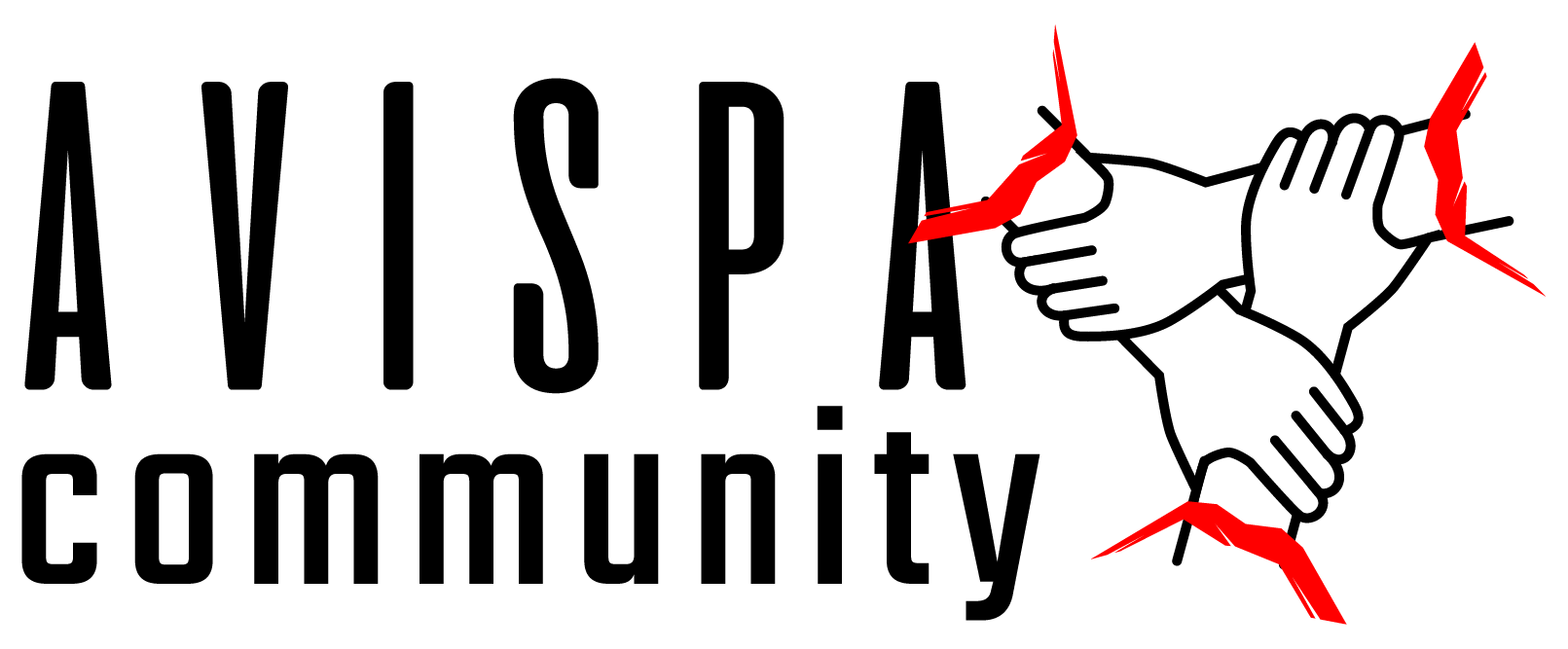Cover image: Displaced families from the community of Buena Vista are sheltered under a tarp roof at the entrance to the highway leading to Santa Rosita, another Maya Q’eqchi’ community that is also at risk of eviction. Photo: Juan Bautista Xol/ Prensa Comunitaria
Following the police operation in May of this year that resulted in the eviction of thirty Maya Q’eqchi’ families from the community of Buena Vista, on the north side of Lake Izabal, in Guatemala, there are now nine communities in the same region of the Polochic Valley who are living beneath the threat of forced displacement.
Indigenous community authorities have criticized the Public Prosecutor’s Office’s intention of enforcing eviction orders. The communities denounce that the evictions are “are being driven by officials and land owners” related to the oil palm industry, who have taken land in the region from communities both to the north and south of the lake.
The media project Prensa Comunitaria reported that during the eviction of the thirty families, in addition to police officials, Luis Fernando Arriaza Migoya and members of his private security team were also present. Arriaza owns oil palm monocrops which supply the Naturaceites company, which processes and commercializes palm oil for transnational companies.
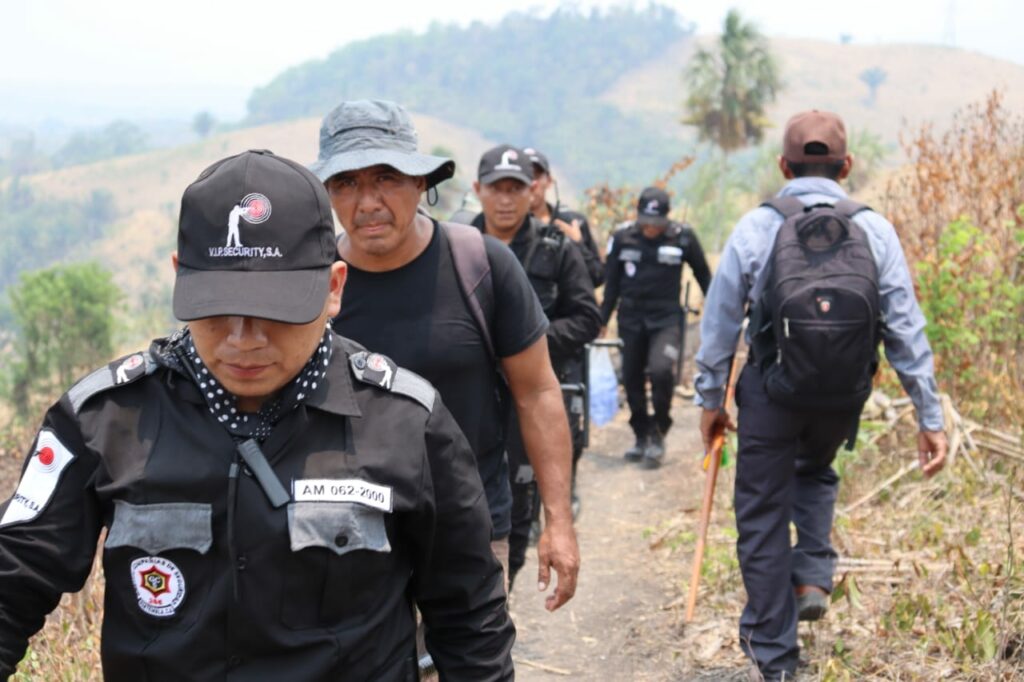

Eviction of families in the community of Buena Vista. Photos: Juan Bautista Col/ Prensa Comunitaria
According to local media, during discussions between the evicted populations and the Presidential Commission on Human Rights of Guatemala, officials notified that there are now nine communities at risk of eviction in the region: Plan Grande, Agrario El Tunico, Chapin Abajo, Chinebal, Las Nubes, Lote 6, Semococh, and Qotoxha of the municipality of El Estor, Izabal, as well as Santa Lucia de Panzós, in the department of Alta Verapaz. In total, there are more than 1,500 people at risk of forced displacement.
Among the thirty families who have already been displaced there are pregnant women, infants, elders, and adults from the Buena Vista community. They are currently living in an improvised encampment beneath the trees.
The camp is on land belonging to the community of Santa Rosita, which is also in danger of eviction. There is a judicial resolution ordering their eviction on June 26, which has since been rescheduled for August 28.
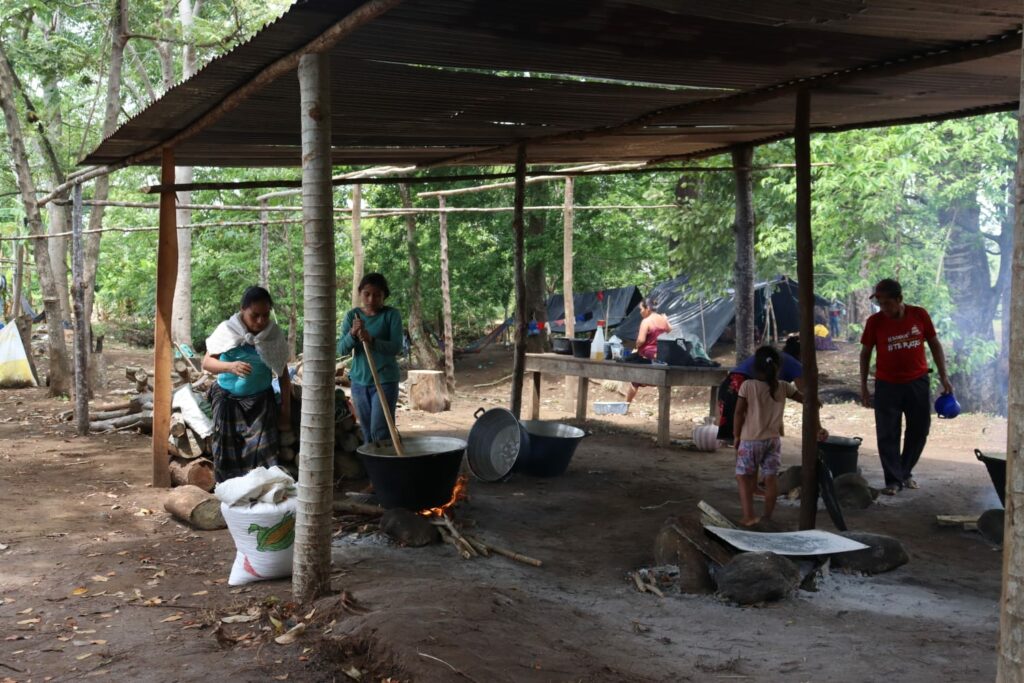
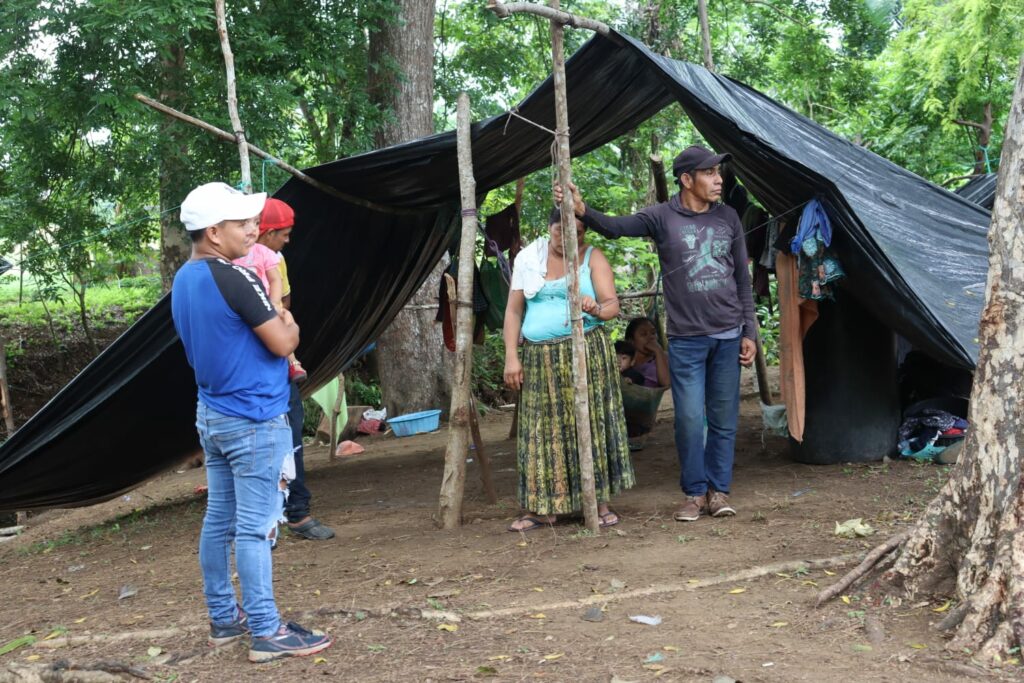
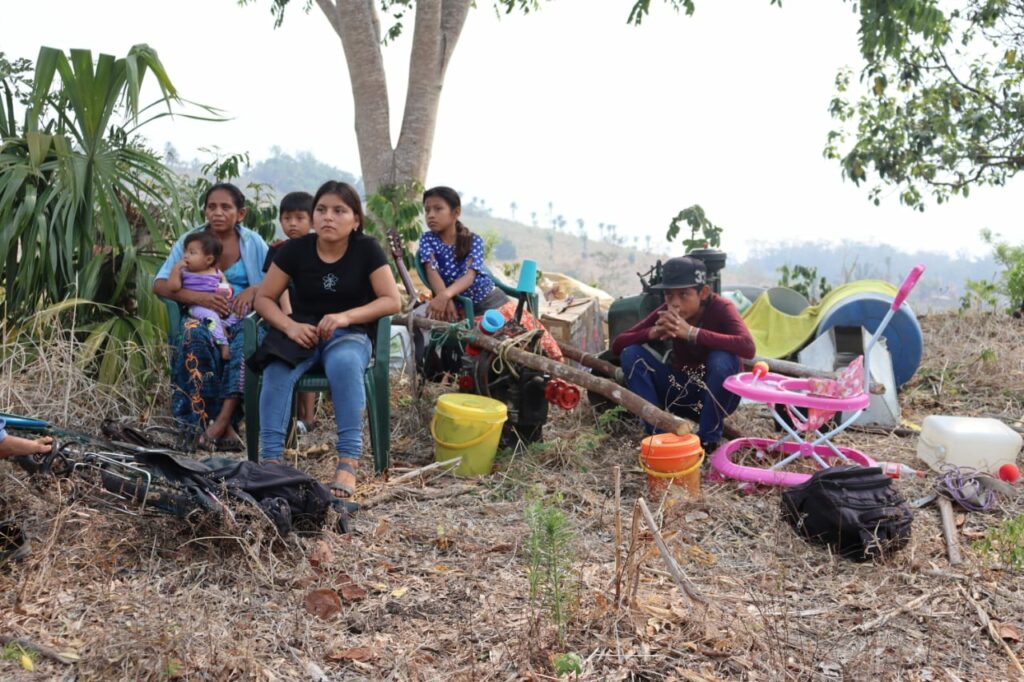
Photos: Juan Bautista Xol/ Prensa Comunitaria
“It is unjust that they continue committing these violent acts, many women and children suffer from health problems. Today, we see the result of an eviction. Families are left abandoned and the children without an opportunity to go to school,” comments Gabriel Pacham, ancestral authority of El Estor.
Between seven and nine displaced people have warrants out for their arrest for the supposed crimes of aggravated usurpation and damage of natural patrimony. They are accused of cutting down oil palms. Although some people have been convicted, they have appealed with legal assistance from human rights organizations.
At a press conference at the end of June, the Council of Ancestral Authorities of the Q’eqchi’ people denounced the different evictions of communities in the Polochic Valley, demanding that the Bernardo Arévalo government guarantee security for the Buena Vista families. These families have inhabited the lands since 2015, when they were displaced by a natural disaster. Since then, they’ve moved into the Tz’inté Estate, a territory that Maya Q’eqchi’ people reclaim as part of their ancestral territories.
Racism
The Council of Ancestral Authorities of the Q’eqchi’ people also denounced state authorities: Judge Sandra Nineth Ayala (who ordered the eviction of Buena Vista and is pushing other evictions), the governor of Izabal, Carlos Tenas, and the municipal authority of El Estor, Genro Ico Cholom. These authorities have been making agreements regarding eviction operations without communicating with the communities, something required by eviction protocol in Guatemala.
“We don’t know what the plan is. This is extreme, and it puts our lives at risk. They want to evict us without a clear humanitarian plan,” said ancestral authorities at a press conference. In addition, they say that it “racism and discrimination, because blaming us is devoid of all human sensibility, claiming that we are a criminal group, ignoring that we possess all the qualities of an organized community that reproduces life in an organized manner.”
On Thursday, July 4, families of Plan Grande reported that workers of the El Murciélago Estate, owned by Miguel Ángel Arriaza Migoya, threatened to evict thirty-eight families from the community.
In response, the Committee of Campesina Unity (CUC) reported that the communities have filed a complaint at the Interamerican Court of Human Rights, in Washington, to solicit protective measures to provide security to the dispossessed. “We do not want more criminalization, persecution, and eviction,” sustains the campesina organization, which is also pursuing an appeal to prevent the eviction of the families of Buena Vista and Santa Rosita.
Threats
Pedro Cuc, ancestral authority of the community of Chapín Abajo, explained to Avispa Midia that he has heard about a possible eviction of his community and the neighboring community of Chinebal, which could occur in the following days. They are still awaiting an official notification from authorities.
“If they want to enter with force, we aren’t going to back down either, the organization is on alert,” he asserts, assuring that Naturaceites S.A. is responsible for the eviction. The company is owned by Swiss-German businessman, Juan Maegli Müller.
He regrets that in Guatemala, with the power and influence of agroindustry, complaints from the Maya Q’eqchi’ population go unheeded. “Because the judicial body is connected to the companies, both the Supreme Court of Justice and the Constitutionality Court,” he explains. There is omission from the National Civil Police and the Public Prosecutor’s Office when indigenous people file complaints against the violence. It is through that violence that the Maegli Müller family has taken over this land.


